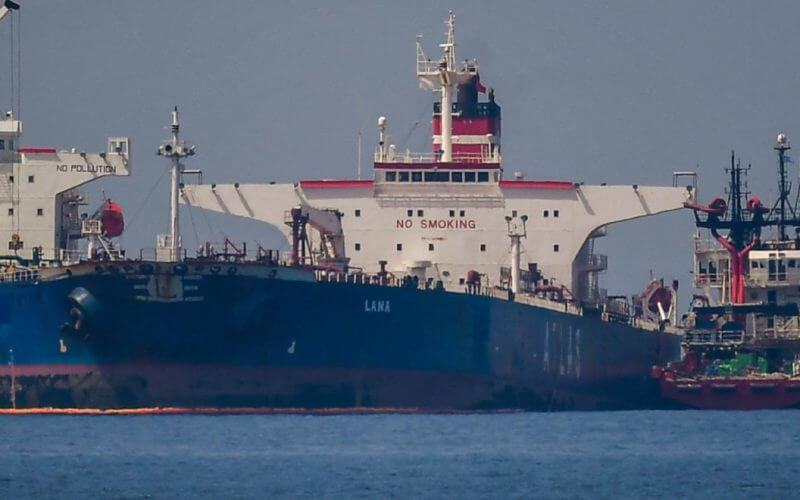By: John Hugh DeMastri, Daily Caller News Foundation
The U.S., alongside the U.K., Denmark and others, called for increased scrutiny of oil transfers that occur at sea, with a particular focus on tankers carrying sanctioned oil, citing potential environmental risks, in a paper submitted to the U.N., obtained by Reuters.
These transfers typically involve “ghost” tankers — which often carry oil from nations like Russia and Iran, which are the target of US-led sanctions — that are not always carefully regulated, according to Reuters. In 2022, ships carrying sanctioned oil were involved in eight groundings, collisions or near misses, the same amount as in the previous three years combined, as hundreds of ghost tankers joined the international oil fleet to help sanctioned nations continue exporting oil, Reuters reported.
“These transfers undermine the rules-based international order and increase the risk of pollution to nearby coastal States,” the countries wrote, according to Reuters. “This threatens global efforts to prevent pollution from ships. These risky practices, although under the jurisdiction of a flag state, unjustly expose national and local governments and authorities to paying for response and clean-up costs and compensating victims.”
These ghost ships engage in a variety of activities to hide their location, ranging from turning off tracking transponders, faking location data and conducting oil transfers in unauthorized areas, at times in poor weather conditions, Reuters reported. These actions pose “serious threats to the safety and security of international shipping,” the U.N.-submitted paper reads.
Some nations, including U.S. allies like Saudi Arabia, have been purchasing sanctioned Russian oil and blending it with their own supplies to relabel and ship it to international markets. Despite U.S.-led sanctions, oil exports remain the main fuel for Russia’s “war economy,” industry experts told the Daily Caller News Foundation recently.
“Nature abhors an energy vacuum,” Dan Kish, researcher at the Institute of Energy Research, told the DCNF in early May. Kish said that although Russia’s revenue from oil exports was down substantially compared to last year, he expected that revenue from these ghost trades to “work its way through the system” to Russian coffers.
The White House and the U.N.’s International Maritime Organization, to which the paper was submitted, did not immediately respond to a Daily Caller News Foundation request for comment.
Related Story: 17 Islamic Republic “Ghost Tankers” Transporting $1 Billion in Oil to Syria










